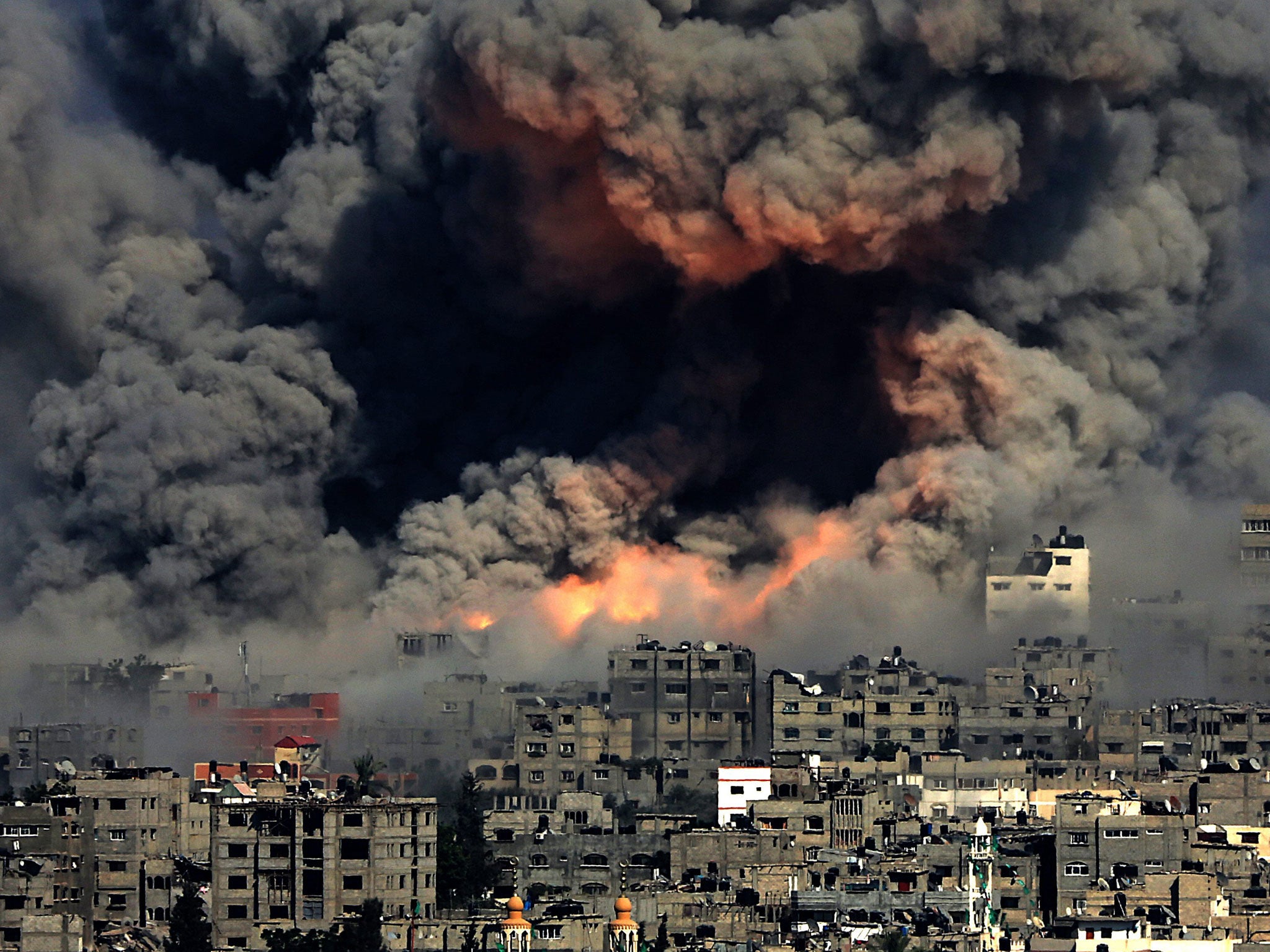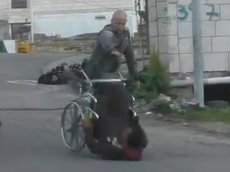Calling Israel's occupation of Palestine apartheid isn't lazy or inflammatory – it's based on fact
As well as having the support of South Africans who fought against apartheid, the situation conforms to its definition under international law


This week I have participated in events organised as part of Israeli Apartheid Week, which every year “aims to raise awareness about Israel’s ongoing settler-colonial project and apartheid policies over the Palestinian people”.
For some, talk of Israeli “apartheid” may seem like just another buzzword used by activists. Others see it as unhelpful, lazy, inflammatory, or even antisemitic.
But what are we really saying when we talk about Israeli apartheid?
First, and crucially, it is not about a precise analogy with the apartheid South Africa regime. Although it is true that prominent veterans of the anti-apartheid struggle have invoked the comparison. In 2002, for example, Desmond Tutu said a trip to Palestine had reminded him “so much of what happened to us black people in South Africa.” And in 2009 Tutu also endorsed a book I had written called Israeli Apartheid: A Beginner’s Guide.
There is a rich discussion to be had about what happened in South Africa and what is happening in Israel and Palestine. But this comparison is not how one ultimately tests whether to speak of Israeli apartheid is accurate or appropriate.
That is because apartheid is a crime in international law, independent of what took place in South Africa. The 1977 Additional Protocol I of the Geneva Conventions of 1949, for example, lists apartheid as a “grave breach”, and one “without any geographical limitation”.
Apartheid is also listed as a “crime against humanity” in the Rome Statute of the International Criminal Court, adopted in 1998 – four years after the formal end of apartheid in South Africa.
The Rome Statute defines apartheid as “inhumane acts…committed in the context of an institutionalised regime of systematic oppression and domination by one racial group over any other racial group or groups and committed with the intention of maintaining that regime.”
Do Israeli laws and practices match this definition? In the words of the US State Department, Palestinian citizens face “institutional and societal discrimination”. This affects areas such as immigration and family life, land and housing.
There is no legal guarantee of equality, and human rights defenders have identified more than 50 discriminatory laws.
In the West Bank, the Israeli state has created and established a network of illegal settlements whose residents – citizens of Israel – live among Palestinians subject to military law. While settlements expand, Palestinian homes are demolished.
Recently, in the words of Israeli human rights NGO B’Tselem, Israeli authorities have “stepped up efforts to expel Palestinian communities from vast areas in the West Bank” – this is ethnic cleansing. From January 1 to February 15 of this year, according to United Nations data, Israeli forces destroyed or confiscated 283 Palestinian homes and other structures, displacing 404.
As a senior UN official explained, while most of these demolitions “take place on the spurious legal grounds that Palestinians do not possess building permits”, Israeli figures themselves show that “only 1.5 per cent of Palestinian permit applications are approved in any case”.
Amnesty International has described the “formal denial of participation in planning for an entire population, coupled with the establishment of a parallel planning system for Israeli settlements that explicitly discriminates in favour of another population whose very presence living in the territory in question violates international law” as “unique globally”.
In the Gaza Strip, Palestinians continue to suffer under an Israeli blockade that constitutes illegal collective punishment. When Israel is not conducting horrific large-scale attacks on the fenced-in territory, there are routine attacks on Palestinian farmers and fishermen.
The majority of Palestinians in Gaza are actually refugees, whose lands are often a few miles away inside Israel’s pre-1967 territory. It is a reminder of the fact that Israel’s "Jewish majority" was only established by the expulsion of Palestinians, and is maintained by their continued exclusion.
This is just a sample – but the key point here is that Israel’s crimes are not “aberrations”. They are not the actions of some gung-ho generals or of one particularly right-wing government. We are talking here about core legislation, and policies maintained by the state over decades.
We are talking about then, as the Rome Statute puts it, “inhumane acts…committed in the context of an institutionalised regime.” This is why the UN Committee on the Elimination of Racial Discrimination has urged Israel to “eradicate” all practices that violate the prohibition of “racial segregation and apartheid.”
To dismiss all of this because Israel “is not the same as South Africa” is to miss the point, in the same way that to whitewash systematic discrimination simply because there is an “Arab” on Israel’s Supreme Court (the only one from 66 justices past and present) is cheap tokenism.
The facts are clear. It is Israeli apartheid that should cause offence – not campaigns (or boycotts) in support of the Palestinians’ basic rights.

